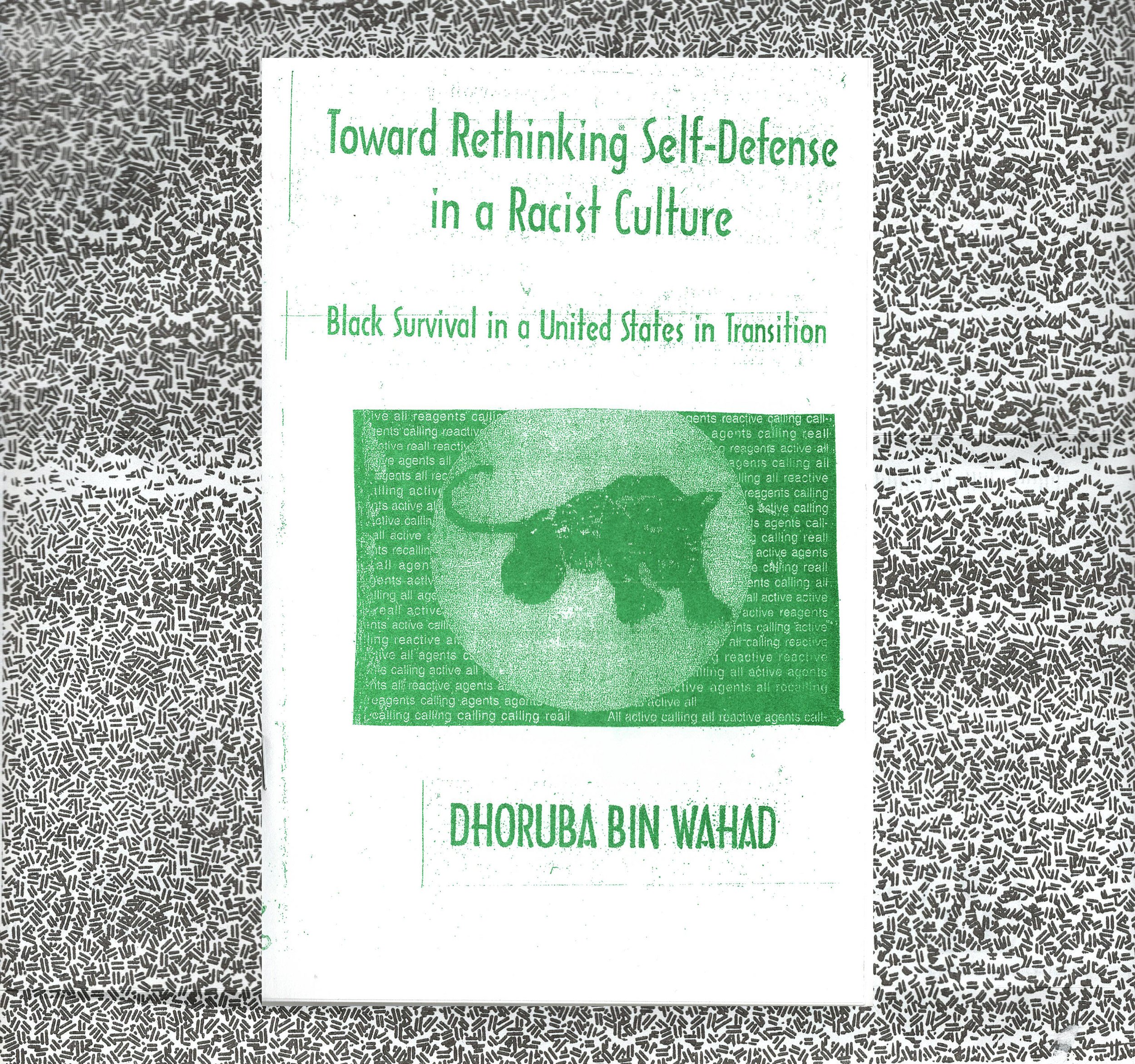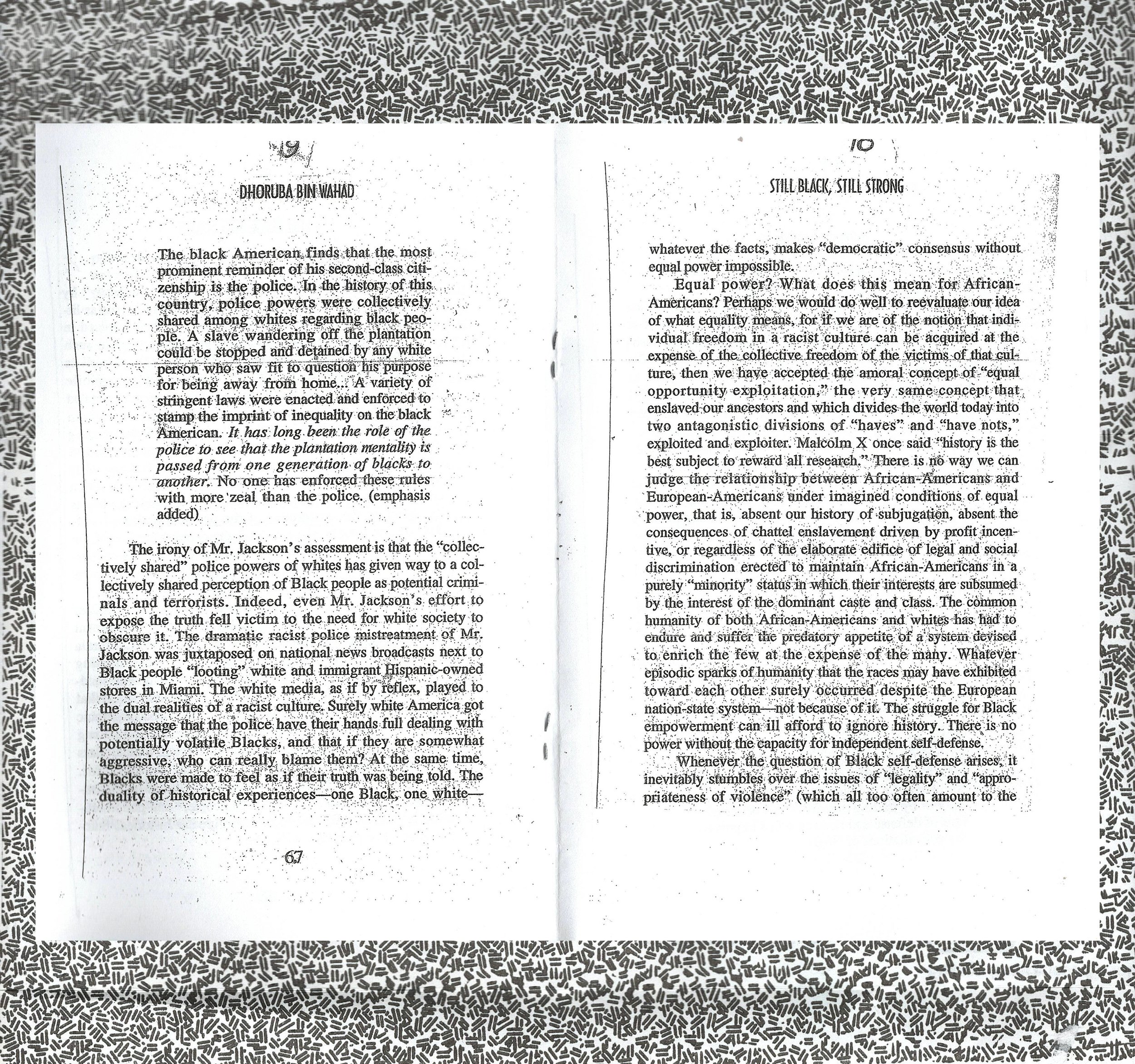 Image 1 of 2
Image 1 of 2

 Image 2 of 2
Image 2 of 2



Toward Rethinking Self-Defense in a Racist Culture
1/2 sized ⦁ 16 pages
Toward Rethinking Self-Defense in a Racist Culture: Black Survival in a United States in Transition by Dhoruba Bin Wahad
In 1971, Dhoruba Bin Wahad was accused of murdering two officers while still in his teens and imprisoned for 19 years. Bin Wahad always maintained his innocence and won his freedom by forcing the FBI to release thousands of classified documents proving that he had been framed. The justice department eventually rescinded Bin Wahad’s conviction and he was released in 1990. This included essay was published three years after Wahad’s release in “Still Black, Still Strong: Survivors of the U.S. War Against Black Revolutionaries;” it remains deeply relevant today.
✿all sales of this zine are redistributed to Black queer/trans mutual aid efforts✿
1/2 sized ⦁ 16 pages
Toward Rethinking Self-Defense in a Racist Culture: Black Survival in a United States in Transition by Dhoruba Bin Wahad
In 1971, Dhoruba Bin Wahad was accused of murdering two officers while still in his teens and imprisoned for 19 years. Bin Wahad always maintained his innocence and won his freedom by forcing the FBI to release thousands of classified documents proving that he had been framed. The justice department eventually rescinded Bin Wahad’s conviction and he was released in 1990. This included essay was published three years after Wahad’s release in “Still Black, Still Strong: Survivors of the U.S. War Against Black Revolutionaries;” it remains deeply relevant today.
✿all sales of this zine are redistributed to Black queer/trans mutual aid efforts✿















